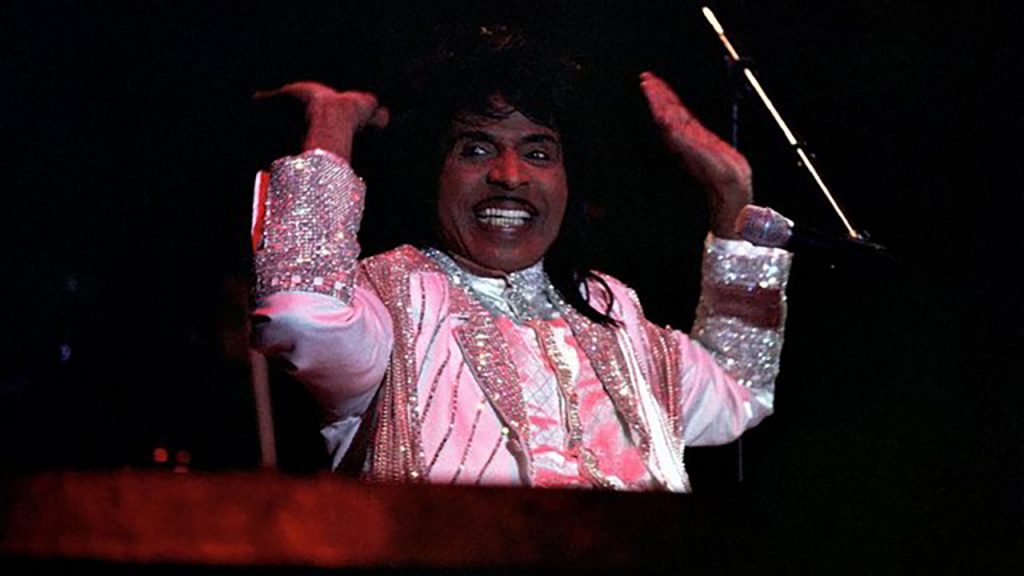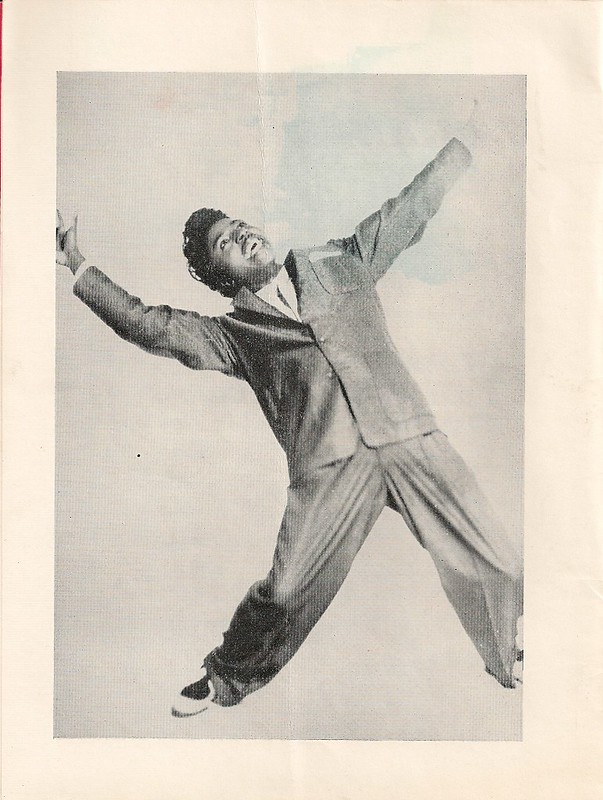Honoring the Legacy of Little Richard: Architect of Rock and Roll
One of the 10 original inductees to the Rock and Roll Hall of Fame, Little Richard shattered cultural barriers leaving behind a remarkable influence on today’s music.

Richard Wayne Penneiman, famously known as Little Richard, was born on December 5, 1932 in Macon, Georgia.
Little Richard, widely known as the “Architect of Rock and Roll,” left a lasting impact on the lives of musicians and audiences who were enthralled with his one-of-a-kind sound.
Click the audio player above to hear more about Little Richard and the indelible mark he left on the music world.
Distinctive Style
Little Richard created his sound out of gospel, the blues, and boogie woogie. He introduced rhythms and beats that became the foundation for rock and roll. He used his vocal style to ground his delivery.
Little Richard was also known for his unique and legendary sense of style. Taking notes from Billy Wright, Little Richard also had that same pencil mustache and pomodore hair. That distinct style influenced future music icons such as Michael Jackson and Prince. One of music’s most flamboyant performers, Liberace, also took inspiration from Little Richard’s style. Nevertheless, what really set him was his music, idolized by Otis Redding, James Brown, and Bob Dylan.
Religious Upbringings
Born into a very religious family, Little Richard’s musical passions were met with disapproval. His family considered R&B the devil’s music, and his father found his choices rather distasteful. Little Richard ultimately left home as a teenager due to these irreconcilable differences. Though, Little Richard revealed that one of his earliest singing influences came from the Church, inspired by the sounds of Mahalia Jackson. His gospel music background would play a significant role in Little Richard’s musical and song development.
Music Career
While battling many initial challenges, Little Richard found his way and signed to RCA Records. Those challenges found him again as a number of his songs were cut, including “Every Hour.” At the time, Little Richard met Esquerita, a gay Black singer and pianist that would eventually influence Little Richard’s onstage persona.
After realizing many of his songs lacked traction, he returned back to his hometown of Macon and formed a new band called the Upsetters. Little Richard sent a demo of their work to Specialty Records at the beginning of 1955. Months later, he was signed. Once again, Little Richard struggled with another round of song disappointment. That disappointment, however, would open the door to the song that changed everything for him: Tutti Frutti.
Tutti Frutti was a smash hit and a defining moment in music history, ultimately launching rock and roll. Singer Pat Boone released a cover of Tutti Frutti that landed a hit and even more traction. Continuing on through the success of his career and sound, Little Richard influenced the Beatles, John Lennon, and Sir Paul McCartney.
A Lasting Legacy
Shattering cultural barriers as a Black artist, Little Richard was one of the ten original inductees into the Rock and Roll Hall of Fame.
He passed away from bone cancer at the age of 87 on May 9, 2020. We will remember Little Richard for his influence, style, and voice that changed the world and music as we know it today.
Haleemah Aqel contributed to this post.
Trusted, accurate, up-to-date
WDET is here to keep you informed on essential information, news and resources related to COVID-19.
This is a stressful, insecure time for many. So it’s more important than ever for you, our listeners and readers, who are able to donate to keep supporting WDET’s mission. Please make a gift today.

